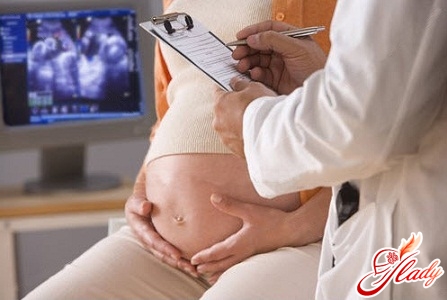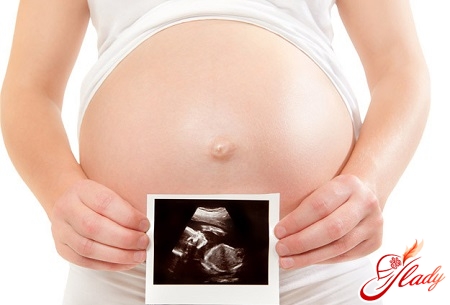 During pregnancy, a woman needs special carecare and increased attention to her health. And this is precisely why it is necessary to take regular tests and systematically visit a gynecologist. Timely elimination of possible problems will help to avoid deterioration of the health of both the expectant mother and her baby. And one of the main indicators of the health of a pregnant woman is the proper functioning of the urinary system. Therefore, the expectant mother should regularly take a general urine test. After all, in addition to changes in the urinary system, a urine test can reveal many other abnormalities in the functioning of other vital systems of the body. The genitourinary system of a woman expecting a child experiences a colossal, double, load. This is explained by several factors: firstly, the kidneys have to remove waste products not only from the pregnant woman herself, but also from her future child. Accordingly, they have to work much harder. In addition, as the child grows, the size of the uterus constantly increases, as a result of which it puts a certain pressure on the kidneys. This fact also greatly complicates the work of the kidneys. And if a woman had prerequisites for the development of urinary tract diseases, a combination of such factors can provoke the development of one or another disease of the genitourinary system. A pregnant woman takes a urine test systematically - during the first trimester - once a month, during the second trimester - twice a week, and in the third trimester - weekly. Urine testing is necessary for all pregnant women without exception, as it is a mandatory stage of perinatal diagnostics.
During pregnancy, a woman needs special carecare and increased attention to her health. And this is precisely why it is necessary to take regular tests and systematically visit a gynecologist. Timely elimination of possible problems will help to avoid deterioration of the health of both the expectant mother and her baby. And one of the main indicators of the health of a pregnant woman is the proper functioning of the urinary system. Therefore, the expectant mother should regularly take a general urine test. After all, in addition to changes in the urinary system, a urine test can reveal many other abnormalities in the functioning of other vital systems of the body. The genitourinary system of a woman expecting a child experiences a colossal, double, load. This is explained by several factors: firstly, the kidneys have to remove waste products not only from the pregnant woman herself, but also from her future child. Accordingly, they have to work much harder. In addition, as the child grows, the size of the uterus constantly increases, as a result of which it puts a certain pressure on the kidneys. This fact also greatly complicates the work of the kidneys. And if a woman had prerequisites for the development of urinary tract diseases, a combination of such factors can provoke the development of one or another disease of the genitourinary system. A pregnant woman takes a urine test systematically - during the first trimester - once a month, during the second trimester - twice a week, and in the third trimester - weekly. Urine testing is necessary for all pregnant women without exception, as it is a mandatory stage of perinatal diagnostics.
Indicators of urinalysis
There are several key indicatorson the basis of which the doctor can objectively assess the condition of the pregnant woman. However, most often pregnant women are afraid of the appearance of protein in their general urine analysis. And this is not without reason - there are a huge number of different myths, rumors, horror stories and guesses around protein in urine. However, all other indicators are very important for an objective assessment of the condition of the mother and child. This is why any changes in the results of the general urine analysis should never be ignored. Therefore, below we will talk about all types of such violations:
- Proteinuria
Proteinuria or, simply put, protein,determined in the general urine analysis of pregnant women. Normally, if a person is completely healthy, there should be no protein in his urine. However, pregnant women are an exception to this rule - a small amount of protein is allowed in their urine analysis. However, this amount, acceptable within the normal range, is strictly limited and in no case should exceed 300 mg. Per day. In the same case, if the urine of a pregnant woman contains more than 300 mg of protein, the doctor can confidently assume that there are certain problems in the urinary, reproductive system of the expectant mother, or there are kidney diseases. In addition, those pregnant women who suffered from various chronic diseases of the kidneys and urinary tract before pregnancy should be extremely careful. As mentioned above, pregnancy is often a real catalyst for the exacerbation of all existing chronic diseases of a woman. If after the next urine test a woman is found to have an increased protein content in her urine, the attending gynecologist must refer the expectant mother for a consultation with a urologist or nephrologist. This is necessary so that any diseases, if they occur, are noticed as quickly as possible. And accordingly, the necessary treatment will also be started in a timely manner, which will increase its effectiveness, as well as minimize the negative impact of the disease on the body of the expectant mother and her baby. Protein in the urine during pregnancy can be caused by a variety of reasons - a thorough examination is necessary. In the same case, if protein in the urine of a pregnant woman appears systematically, and even in large quantities, doctors prefer not to risk the health of the woman and the child. This is why the pregnant woman is shown urgent hospitalization in a hospital, as a rule, in the pregnancy pathology department, or the nephrology department of the hospital. In no case should you refuse the proposed hospitalization, since not only the health of the mother and baby, but even their lives may depend on it. Unfortunately, sometimes doctors are forced to resort to inducing premature labor. This measure is the only way to save the life of both the pregnant woman and her baby. However, you should not refuse hospitalization just because you are afraid that doctors will decide to resort to premature labor. Believe me, doctors will never do this if there are other ways to help the mother and baby. If the expectant mother has protein in the urine during pregnancy, what to do, doctors know in detail. Very often, the amount of protein in the urine increases sharply after about 32 weeks of pregnancy, and against the background of nephropathy. This condition has very pronounced symptoms, by which the doctor can reliably and without any difficulty diagnose nephropathy:
- The appearance of a large amount of protein in the urine of a woman. This symptom is the most important in the diagnosis of nephropathy.
- The appearance of edema in a pregnant woman. It is not so important at what time of day they appear.
- Increase in blood pressure in a pregnant woman.
Nephropathy is quite seriousa disease that has an extremely negative impact on the health of not only the expectant mother herself, but also her baby. The placenta suffers from this disease first of all – its main functions suffer:
- Protect the future child from various external negative influences.
- Violation of normal blood circulation in the placenta,which inevitably leads to insufficient supply of the child with both nutrients and oxygen. As a consequence, the risk that the future baby will be born with signs of exhaustion and (or) hypoxia is very high.
As a result of all these violations it is possibledevelopment of complications such as the threat of premature onset of labor, significant intrauterine growth retardation, and even, in particularly severe cases, intrauterine death of the fetus. That is why the problem of protein in the urine of a pregnant woman should in no case be ignored.
- Bacteriuria
Bacteriuria is the presence of pathogenic bacteria in the urine.bacteria. This phenomenon regularly occurs in a huge number of people. However, pregnant women also fall into a kind of "risk group" - they have bacteria in their urine about five times more often than everyone else. As a rule, the presence of bacteria in the urine indicates the development of either bladder inflammation - cystitis, or kidney inflammation - pyelonephritis in the body of the expectant mother. Of course, immediate treatment is necessary in both cases. However, pyelonephritis poses a much greater threat to a pregnant woman than cystitis. And treatment for pyelonephritis is much more labor-intensive and takes a lot of time. And again, it is necessary to mention that expectant mothers are much more susceptible to developing pyelonephritis - about half of all cases of pyelonephritis, both acute and chronic, first make themselves known during the expectation of the birth of a child. And general statistics clearly show that women are about six times more likely to suffer from pyelonephritis than men. There is another fact that confirms the need for a systematic study of the urine analysis of the expectant mother - asymptomatic bacteriuria. In this case, the pregnant woman herself does not experience any symptoms of an existing disease of the genitourinary system, and therefore does not seek medical help from a doctor. However, nevertheless, the child may suffer significantly. And by timely passing a urine test, the mother takes care of her health. And the well-being of the baby, which is the main priority in life of any mother.
- Leucocyturia
Another important indicator that alsoIt is necessary to pay special attention when examining the urine analysis of pregnant women - this is the content of leukocytes. The presence of leukocytes in the urine also indicates that the woman has pyelonephritis or other diseases of the urinary tract, usually of an infectious nature. And the doctor simply needs to correctly diagnose this disease. However, expectant mothers should remember that if certain deviations are observed in the general urine analysis, an in-depth examination is necessary: other types of urine tests, blood tests, ultrasound examination of the genitourinary system. We recommend reading:









